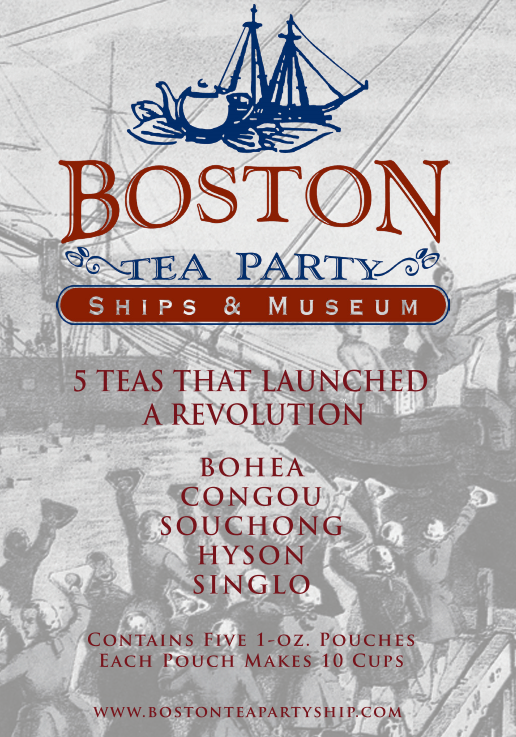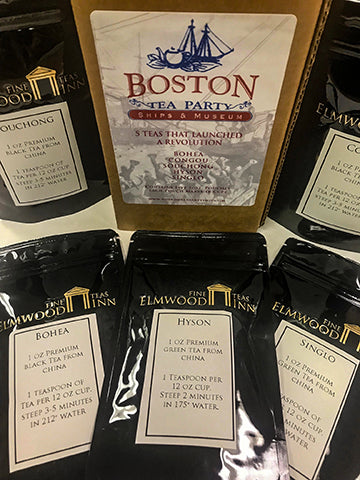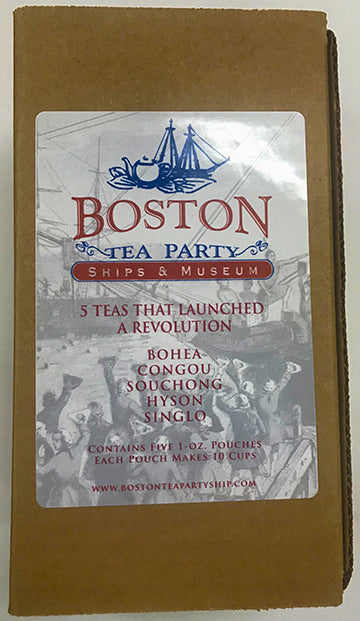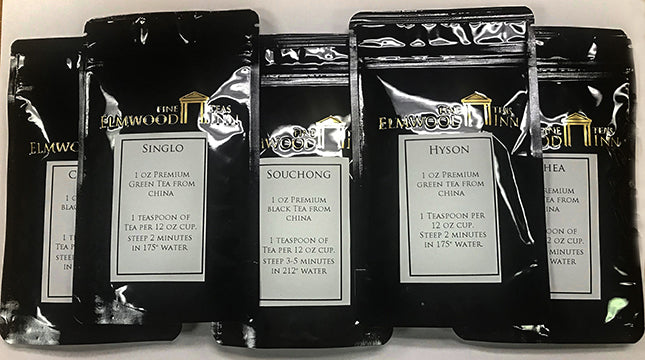Five Teas that Launched a Revolution
Five Teas that Launched a Revolution
Couldn't load pickup availability
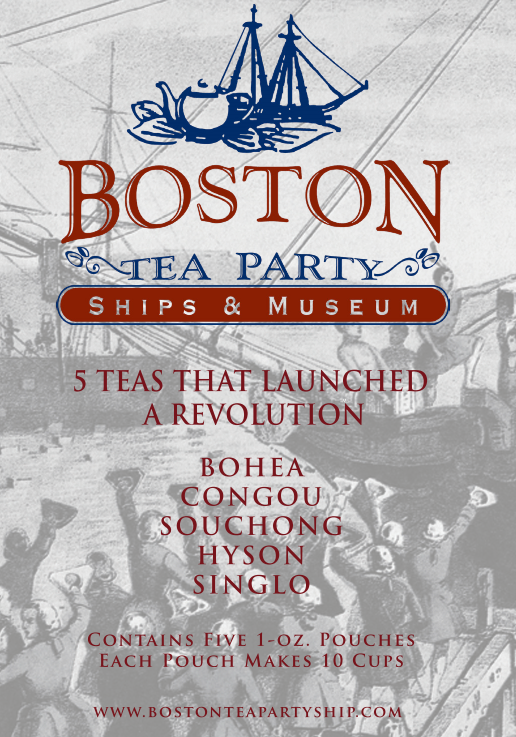
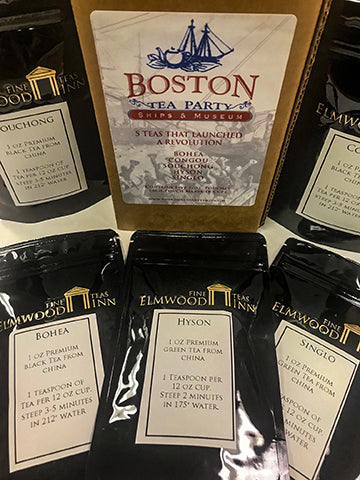
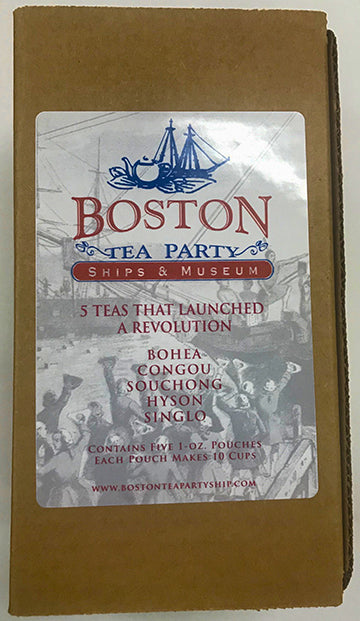
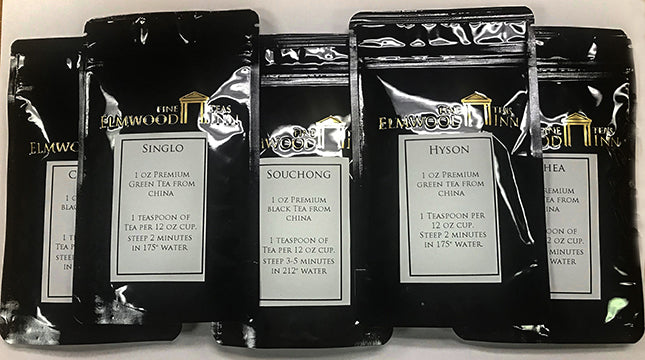
Five Teas that Launched a Revolution Information
Our Five Teas that Launched a Revolution collection is curated by Bruce Richardson, Tea Master for the Boston Tea Party Ships & Museum (and our founder).
• Bohea Black Tea - 240 wooden chests of this low-grade Chinese black tea from the Wuyi Mountains of Fujian Province were onboard the three ships in Boston Harbor. "Bohea" is the pronunciation in the Minnan dialect of the Wuyi Mountains. This ungraded tea was picked, oxidized, and charcoal-dried after the prized spring teas had been harvested. (.75 oz.)
• Congou Black Tea - This expensive Chinese black tea was well-made, hence the name derived from Kung Fu, meaning any study, learning, or practice that requires patience, energy, and time to complete. Fifteen chests of Congou were dumped into Boston Harbor. (.75 oz.)
• Souchong Black Tea - Also from the Wuyi Mountains, this black tea was made from the larger leaves of the tea bush. This sometimes-smoky tea was one of Thomas Jefferson's favorites. Ten chests of Souchong were destroyed in Boston. (.75 oz.)
• Hyson Green Tea - This common 18th-century Chinese green tea was often found in the teapots of fine homes from Boston to London. Fifteen chests of this spring-picked tea were aboard the ships in Boston Harbor. (.75 oz.)
• Singlo Green Tea - From the Sunglo Mountains of China's Anhui Province, this well-made green tea was picked in the early spring. It was the most expensive of the five teas. Sixty chests of Singlo - the first ever to be shipped to the Colonies - were destroyed in Boston Harbor. (.75 oz.)
• T-sac #1 infuser bags - 20 convenient one-use bags perfect for cups and mugs that let your tea expand when the leaves rehydrate, allowing for better water circulation as the full flavor of the tea is released into the liquor.
Packaged by Elmwood Inn Fine Teas, Danville, KY. For more information about the history of tea, read A Social History of Tea by Bruce Richardson.
Continue your tea education with The New Tea Companion by Bruce Richardson and Jane Pettigrew.
I have not tasted all the teas, but I love the notes about the teas and the history. And, the taste is full and rich!
Putting aside my delight that these are the same kinds of tea that were thrown into the Boston Harbor, the variety is great. My comments on the quantity are the same as my review for the black tea sampler: enough leaf for you to figure out how you like it, and enough left over afterwards to enjoy it and decide if you want to buy more. The green teas are fantastic (the Hyson is my favorite and leaves a nice sweet aftertaste), the two more normal black teas are very stable (the Congou is my favorite, probably because it seems rather similar to Keemun, which I know I love), and the more adventurous Souchong is, well, adventurous. I was surprised to find that I honestly didn't even enjoy the Souchong that much, but I'm glad I could get it in a sampler with these other teas that I do very much enjoy. And there's plenty left over for me to try it again later once my palate is more refined.
A worthy 5 stars, as far as I'm concerned,
EXCELLENT TEA! DELICIOUS

